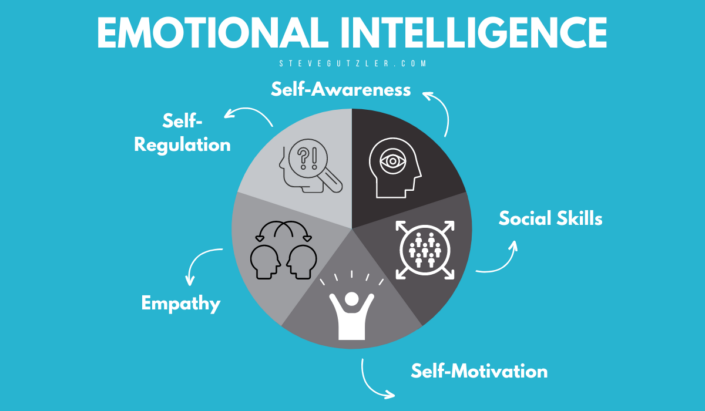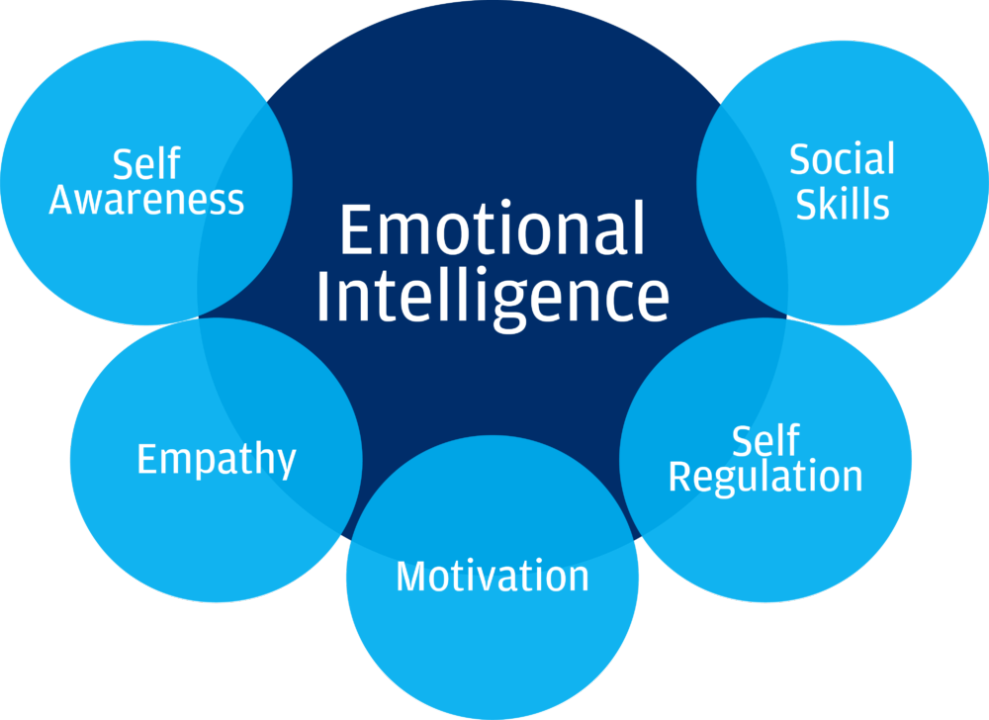In today’s fast-paced world, resilience is an essential skill that allows individuals to bounce back from challenges, adapt to change, and maintain their well-being. While there are many strategies to build resilience, one of the most effective is developing emotional intelligence (EQ). Emotional intelligence is the ability to understand, manage, and effectively express emotions, both in yourself and in others. It is a cornerstone of resilience because it empowers you to respond to difficult situations with clarity, empathy, and strength. Here’s how emotional intelligence contributes to building resilience and practical ways to develop it.
What Is Emotional Intelligence? Emotional intelligence encompasses five key components: self-awareness, self-regulation, motivation, empathy, and social skills. These elements work together to help you navigate challenges, handle stress, communicate effectively, and maintain strong relationships. People with high EQ are better equipped to manage their emotions, which leads to healthier reactions to stress and greater resilience over time.
1. Self-Awareness: Understanding Your Emotional State Self-awareness is the foundation of emotional intelligence. It involves recognizing your emotions as they arise and understanding how they impact your behavior and decision-making. Self-awareness allows you to identify triggers that contribute to stress and respond to them more mindfully. For example, if you notice that certain situations make you anxious, self-awareness helps you recognize these feelings without judgment and take proactive steps to manage them. By understanding your emotional state, you can create a buffer between a stressful event and your response to it, thus preventing impulsive reactions and building greater resilience.

2. Self-Regulation: Managing Emotions Effectively Self-regulation is the ability to manage your emotions in healthy ways. When stress hits, self-regulation enables you to pause, take a step back, and choose how to respond instead of reacting impulsively. Techniques such as deep breathing, counting to ten, or practicing mindfulness can help you control your emotional responses and maintain a calm, balanced state. By consistently practicing self-regulation, you strengthen your emotional resilience and become better equipped to handle difficult situations without becoming overwhelmed or reactive.
3. Motivation: Staying Driven Amid Adversity A strong sense of motivation is an integral part of resilience. People with high emotional intelligence often have an intrinsic motivation that drives them to push forward, even in the face of adversity. This motivation is rooted in a positive outlook and the belief that challenges can lead to personal growth. By setting meaningful goals and staying connected to your deeper purpose, you can build resilience that will help you overcome obstacles with determination and perseverance. A motivated mindset not only helps you keep moving forward but also encourages you to learn from setbacks rather than be discouraged by them.

4. Empathy: Understanding Others’ Emotions Empathy is the ability to understand and share the feelings of another person. It is a crucial component of emotional intelligence that enhances your capacity to build strong relationships and navigate social situations with grace. Empathy allows you to offer support to others during their difficult times, creating a network of mutual support that can bolster your own resilience. By practicing active listening, asking open-ended questions, and being present for others, you strengthen your empathy and build deeper connections. These connections provide a valuable source of support when you face challenges yourself.
5. Social Skills: Building Strong Relationships Social skills are essential for maintaining healthy relationships, collaborating with others, and building networks that can support you during difficult times. Having strong social skills means being able to communicate effectively, manage conflicts, and maintain trust. These skills are vital for fostering relationships that can help you stay grounded and resilient. When you face personal or professional challenges, having a strong support system can make all the difference. Practice social skills by being authentic, transparent, and actively engaging with others in meaningful ways.
Practical Ways to Develop Emotional Intelligence Now that we understand the components of emotional intelligence, here are practical ways to develop and strengthen these skills to build resilience:
1. Practice Mindfulness and Self-Reflection Regular mindfulness practices can enhance self-awareness and self-regulation. Setting aside time each day for meditation or quiet reflection allows you to observe your thoughts and emotions without judgment. This practice helps you better understand how you react to stress and gives you the space to choose healthier responses.
2. Engage in Active Listening To improve empathy and social skills, focus on truly listening to others. Practice giving your full attention when someone is speaking, without planning your response while they talk. Reflect on what they’re saying and respond thoughtfully. This practice deepens connections and helps you build stronger support networks.
3. Set Achievable Goals Motivation thrives on achieving tangible goals. Set small, achievable goals that align with your larger aspirations, and celebrate each milestone along the way. This not only boosts your confidence but also builds a habit of resilience when facing new challenges.
4. Learn to Reframe Negative Thoughts One way to manage emotions effectively is to reframe negative thoughts. When you encounter a challenge or setback, try to see it as an opportunity for growth. Instead of thinking, “This is too difficult,” shift your mindset to, “This is a chance to learn and improve.”
5. Take Care of Your Physical Health Your physical well-being has a direct impact on your emotional state. Regular exercise, healthy eating, and adequate sleep all contribute to higher emotional intelligence by improving your mood, energy levels, and overall resilience. Prioritizing your physical health allows you to handle stress more effectively and maintain a clear, balanced mindset.
Conclusion Emotional intelligence is more than just a valuable trait—it’s a vital component of resilience. By developing self-awareness, self-regulation, motivation, empathy, and social skills, you can better manage stress, adapt to challenges, and build a life that is not only successful but also fulfilling. Start practicing these strategies today and take steps toward greater emotional intelligence and resilience.
